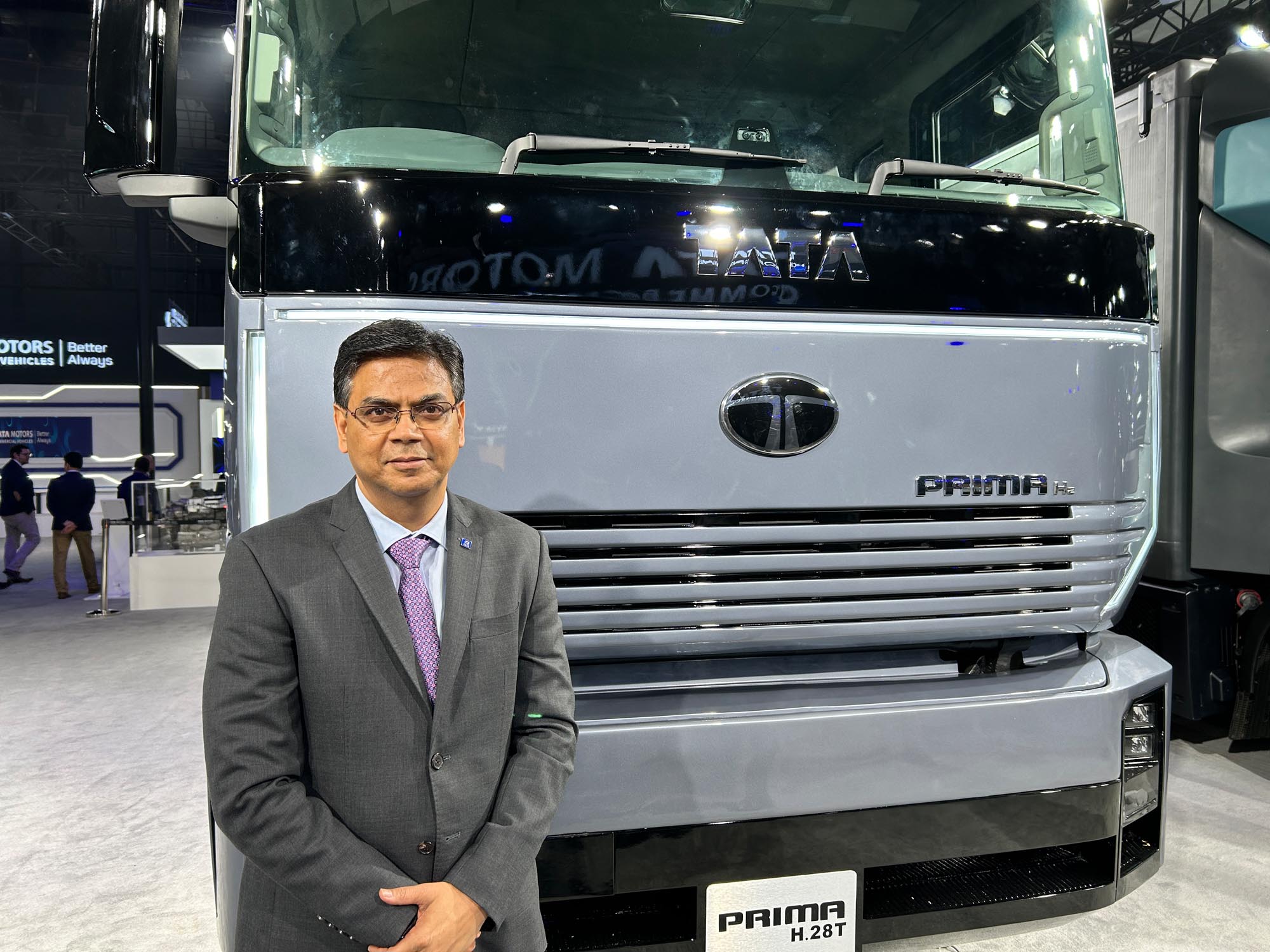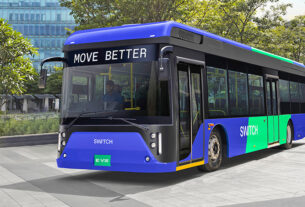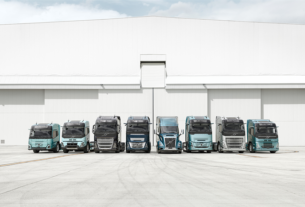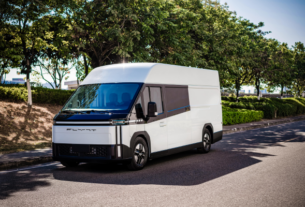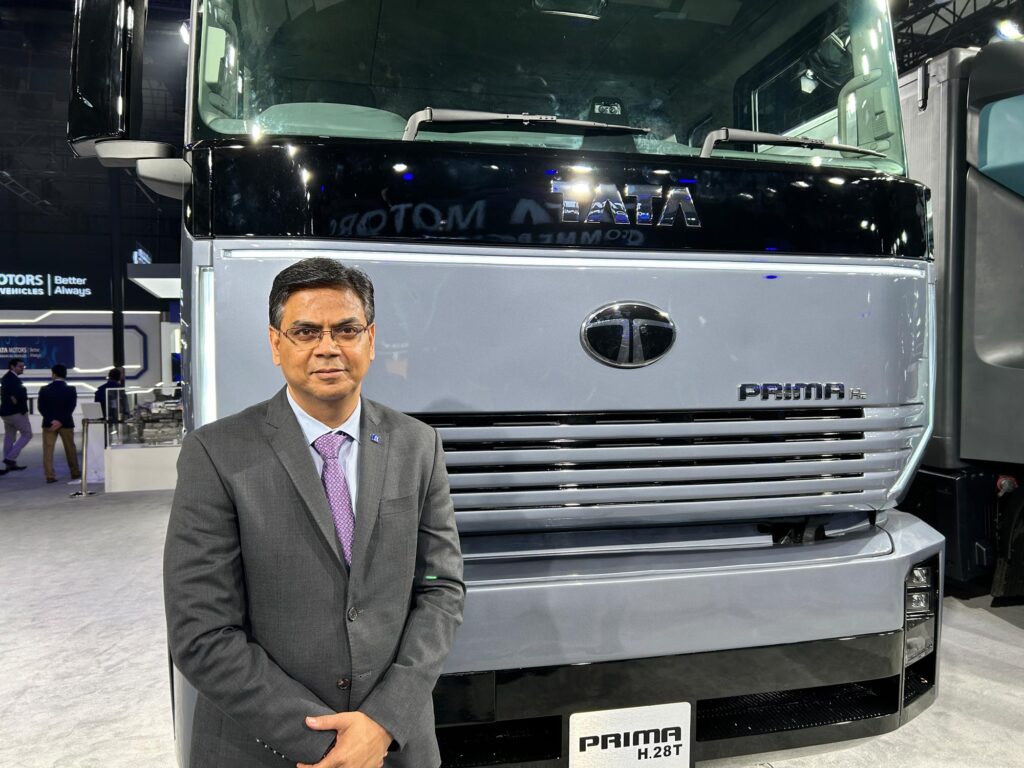
Tata Motors marked a significant milestone at the Bharat Mobility Global Expo 2025 with the unveiling of its latest brand proposition, “Better Always.” This strategic transformation underscores the company’s commitment to innovation and sustainability, reinforcing its core value proposition of enabling customer success. In an exclusive interview with Rajesh Rajgor, Girish Wagh, Executive Director, Tata Motors, shared insights into the brand’s vision, new product launches, and market performance.
A Showcase of Innovation and Sustainability
At the event, Tata Motors showcased 14 new vehicles, including six battery electric vehicles (BEVs), and introduced six advanced mobility solutions. Wagh elaborated on the company’s approach, stating, “We are embarking on a bold transformation, and as part of this, we have unveiled a diverse portfolio that caters to various mobility needs—from last-mile connectivity to heavy-duty transportation. Our focus remains on providing solutions that are sustainable, efficient, and technologically advanced.”
Among the key electric offerings was the Tata Ace Pro EV, a next-generation vehicle designed for last-mile delivery, and a 55-ton electric tractor aimed at decarbonizing sectors like steel and cement. The company also introduced a hydrogen internal combustion engine (H2-ICE) truck, a 28-tonne vehicle that will be part of India’s hydrogen pilot initiative starting next month. Wagh highlighted the importance of this move, saying, “Our H2-ICE technology represents a major step forward in sustainable mobility. We are actively working with industry partners to scale up hydrogen infrastructure and ensure commercial viability.”
The company’s expansion in the bus segment was equally noteworthy, with three new models introduced for urban and intercity travel, including a sleeper coach for the luxury travel segment. “Buses play a crucial role in public transport, and our latest models are designed to offer enhanced passenger comfort, superior efficiency, and reduced emissions,” Wagh added.
A New Design Language for the Future
In alignment with its refreshed brand proposition, Tata Motors has also redefined the design language of its commercial vehicles. The introduction of the Tata Trust Bar, a distinctive element in its design, now signifies advanced driver assistance systems (ADAS) and enhanced connectivity.
Explaining the design evolution, Wagh stated, “The Trust Bar remains integral to our identity, but it now reflects our technological advancements in ADAS and connectivity. Additionally, our brand logo has transitioned to a more digital-centric 2D format, symbolizing the next-generation digital era. This new design philosophy ensures our vehicles are future-ready, with an emphasis on safety, efficiency, and aesthetics.”
Performance and Market Outlook
Reflecting on Tata Motors’ performance in the ongoing financial year, Wagh noted that the company witnessed fluctuations across different quarters. “The first quarter showed strong year-on-year growth, but the second quarter saw a decline due to heavy rains and election preparations in key states. However, the third quarter has shown improvement, and we remain optimistic about closing the financial year on a flat year-on-year basis,” he elaborated.
Breaking down segment-wise performance, Wagh pointed out that the bus and van segments have been the strongest performers, driven by government orders and growing demand for school and staff transportation. The small commercial vehicle (SCV) and intermediate light commercial vehicle (ILCV) categories have remained stable, while the heavy commercial vehicle (HCV) segment experienced a single-digit decline. “We are hopeful that by the fourth quarter, the HCV segment will stabilize, closing in line with last year’s performance,” he added.
Commitment to a Sustainable Future
With sustainability at the core of its strategy, Tata Motors continues to push the boundaries of innovation in commercial mobility. The company’s focus on electric, hydrogen, and technologically advanced vehicles aligns with India’s broader transition towards green mobility. “Our journey towards a sustainable future is not just about vehicle launches but about shaping an ecosystem that fosters efficient, cleaner, and smarter mobility solutions,” Wagh emphasized.
Discussing the company’s long-term roadmap, Wagh stated, “Sustainability is not a one-time effort; it is a continuous journey. We are investing in R&D, collaborating with ecosystem players, and working towards making alternative fuel solutions more accessible. Our vision is to be at the forefront of this change and drive the commercial vehicle industry towards a greener future.”
As the industry evolves, Tata Motors remains at the forefront of this transformation, driving innovation and redefining commercial transportation with its commitment to sustainability and technological advancements.


